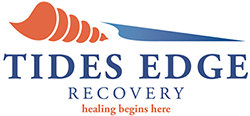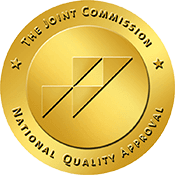Many people often use the terms “drug dependence” and “drug addiction” interchangeably. From a clinical standpoint, however, these terms do not necessarily imply the same problem or condition. What is the difference between dependence and addiction?
Let’s take a closer look at dependence and addiction. However, there’s something to remain aware of as we proceed. Regardless of the distinction, individuals dependent on or addicted to drugs need professional help to heal and recover. Tides Edge Detox offers extensive drug detox to help individuals begin their recovery from the disease of addiction. To learn more about our drug detox center in Florida, call 866.723.3127 today.
Understanding Drug Addiction
Drug addiction, also known as substance use disorder, is a complex condition characterized by an uncontrollable urge to use drugs despite harmful consequences. It’s a chronic disease that can affect the brain and behavioral patterns, leading to an inability to control drug use. Addiction can involve the use of illegal drugs, prescription medications, or even over-the-counter substances when used inappropriately. The progression from voluntary use to addiction varies by individual, influenced by genetic, psychological, and environmental factors.
Signs and symptoms of drug addiction can manifest physically, behaviorally, and psychologically, including:
Physical Signs
- Noticeable changes in appetite or sleep patterns
- Deterioration of physical appearance, personal grooming habits
- Unexplained bruises or marks on the body
- Slurred speech, impaired coordination
Behavioral Signs
- Sudden change in friends, favorite hangouts, and hobbies
- Frequent trouble with the law, including fights, accidents, illegal activities
- Unexplained need for money or financial problems; may borrow or steal to get it
- Engaging in secretive or suspicious behaviors
Psychological Signs
- Appears fearful, anxious, or paranoid, with no reason
- Lack of motivation; appears lethargic or ‘spaced out’
- Sudden mood swings, irritability, or angry outbursts
- Periods of unusual hyperactivity, agitation, or giddiness
Understanding the severity and complexity of drug addiction is crucial. It’s not simply a matter of willpower. Long-term exposure to drugs alters the brain in ways that result in powerful cravings and a compulsion to use, making sobriety a difficult goal to achieve.
Understanding Drug Dependence
When understanding the difference between drug dependence and drug addiction, the distinction needs to be in the frequency and duration of use. An individual that smokes weed every six months would not be classified as someone who is addicted. The person who smokes weed every day and cannot seem to quit would be classified as someone with an addiction.
Dependence on a drug implies that the body has adapted to the substance, often resulting in tolerance and withdrawal symptoms upon cessation. Addiction, on the other hand, encompasses a broader spectrum of issues, including compulsive drug use despite negative consequences, signaling a deep-rooted psychological dependency.
Some of the characteristics of drug dependency include:
- Repeated failed attempts at quitting
- An obsession with the drug that dominates a person’s life
- Increased dosage and use regardless of the risks
- Dangerous and risky behavior that seems to get worse
- Negligence of responsibilities at home, work, or school
- Denial that there is a problem or hiding the problem
A person who is dependent on drugs often views their condition in light of their relationship with the substance. Everything revolves around the drug to the point where they will continue using it regardless of the consequences. To rid the body of drug dependence, the person must undergo drug or alcohol detox. Even if they’re prescribed painkillers or benzodiazepines.
Understanding Withdrawal Symptoms and the Role of Detox
Withdrawal symptoms vary depending on the drug but can include both physical and psychological symptoms. Physical withdrawal symptoms may include:
- Nausea
- Vomiting
- Sweating
- Shaking
- Seizures
Psychological withdrawal symptoms may include:
- Anxiety
- Depression
- Irritability
- Insomnia
Withdrawal symptoms are inevitable during detox—especially with harder drugs with meth or heroin. Drug detox, the initial step in treating dependence, helps eliminate substances from the body and can occur at home or professionally. It can be uncomfortable due to withdrawal symptoms, making support crucial during this period. After drug detox, patients will need to undergo further treatment to address the underlying causes of their dependence. Treatment may include therapy, medication, or a combination of both.
If you or someone you know is battling drug dependence, it’s crucial to seek assistance without delay. Staying silent won’t bring change.
Get Help at Tides Edge Detox Center
Now that you know the difference between dependence and addiction, it’s time to take action. If you or a loved one are suffering from drug dependency or addiction, contact Tides Edge Detox. We can help you overcome your addiction through comprehensive detox, rehab, and aftercare. To find out more about your treatment options, call 866.723.3127, or use our online contact form.









